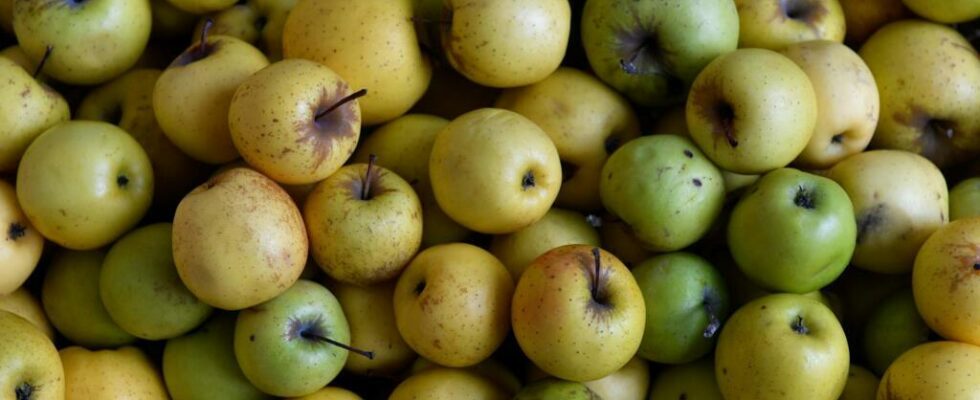Gala, Golden, Pink Lady, each year, nearly 1.5 million apples are harvested in France, the third producer in Europe. In conventional culture, it is one of the fruits that receives the most phytosanitary treatments. More than 30 insecticides, fungicides or herbicides are sprayed on the fruits on average before being eaten. Faced with the risk of environmental pollution and health risks, the European and French objective is to halve the use of pesticides by 2030. But there are few effective and natural methods for S ‘ Pass it.
To do without pesticides, researchers from INRAE (the National Research Institute for Agriculture, Food and the Environment) are trying to develop new methods. It is The CAP Zero Phyto program.
Well red and sweet, but also tapling, one of the main apple diseases, the story is the fruit of a beautiful story. Already planted in Europe, it begins to export to the United States, South Africa and Chile. It is in the orchards of INRAE, in Beaucouzé, in the west of the Francethat it was born, in the genetic selection program of researcher François Laurens. “” We try to contribute to the creation of new varieties that will be less treated. We make crosses and then we will gradually select the combinations that make the variety more resistant, explains the researcher. And then it will be planted in orchards like here. It takes several years of crosses before obtaining a variety. »»
Read too Pesticides, phytopharmaceutical products: what do these terms of those who employ them say?
UV use
It was necessary to plant thousands of apple seeds and over 20 years to find Story. Its resistance to the tavement is only partial, but it already makes it possible to reduce the treatments against the fungus by 30 to 40 % which attacks the fruits and the leaves. It is one of the levers to definitively replace pesticides. “” We will not get there with a miracle product that will replace a phyto, Esimes Claude Coureau, engineer, who participates in the CAP Zéro Phyto project. We will have to add a whole bunch of different practices, genetics, new more resistant varieties, UV. This is brand new. So, we will combine a whole bunch of techniques to achieve a solution that will replace Phyto. »»
The researchers have indeed discovered that if they lit up the apple trees with UV rays, plants activated their natural defenses to protect themselves from sunburns. They will be a little better prepared in case of assault. “” The idea will be to activate the immunity of the plant before the disease arrives, explains Matthieu Gaucher, engineer at INRAE, so that she protects herself against diseases. »»
A combination of levers to replace pesticides
For this, in addition to UV rays, it also tests various stimulators of plant defenses in the huge greenhouses of the research center or directly in orchards. “” So there is for example potassium phosphonate which is a mineral, continues the researcher, Limocide, a soft orange essential oil, plant extracts like tomato walls, which, when applied to other plants, activate the defenses of the plant. »»
All these research avenues seem promising, but it will still take several years of testing to determine which combination of levers will be effective enough to replace deleterious chemical pesticides and the environment. Above all, these new techniques will have to be affordable to encourage farmers to adopt them, without further weating the pressure on a crisis profession.
To listen to in European accents Pesticides, pillar of an agricultural model in crisis
